Albert Einstein was a student and professor at ETH. This year marks the 100th anniversary of his Nobel Prize in Physics. Solve our anniversary quiz and learn more about ETH's most famous alumnus.
Quiz: ETH’s most famous alumnus
- Question 1 of 12
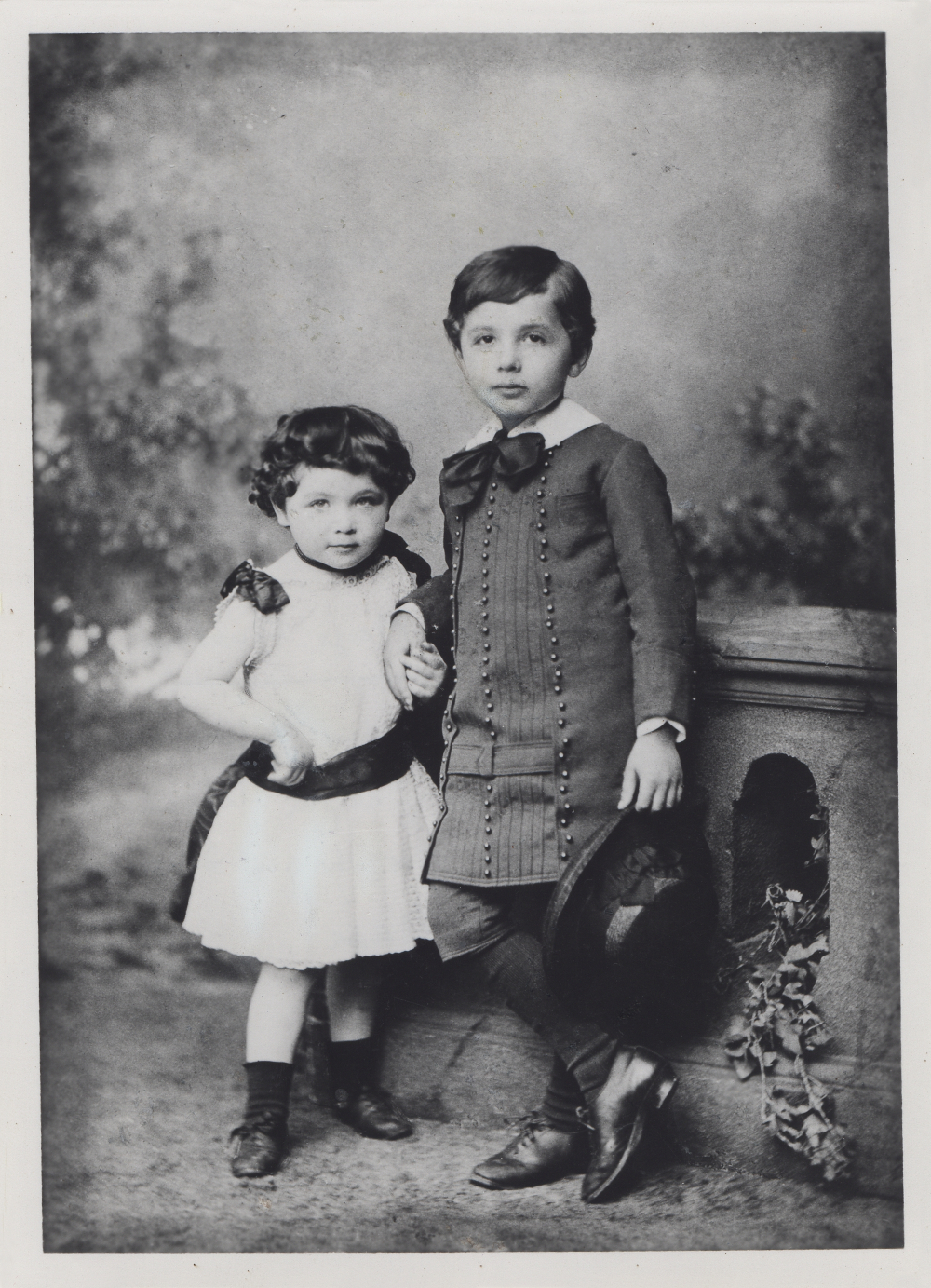
1. Where was Albert Einstein born?
✓ Correct Albert Einstein was born in Ulm on 14 March 1879. He grew up in Munich, where he went to primary school and then grammar school until 1894. (Image: Image: ETH-Library Zurich, Image Archive)
✘ False Albert Einstein was born in Ulm on 14 March 1879. He grew up in Munich, where he went to primary school and then grammar school until 1894. (Image: Image: ETH-Library Zurich, Image Archive)
- Question 2 of 12
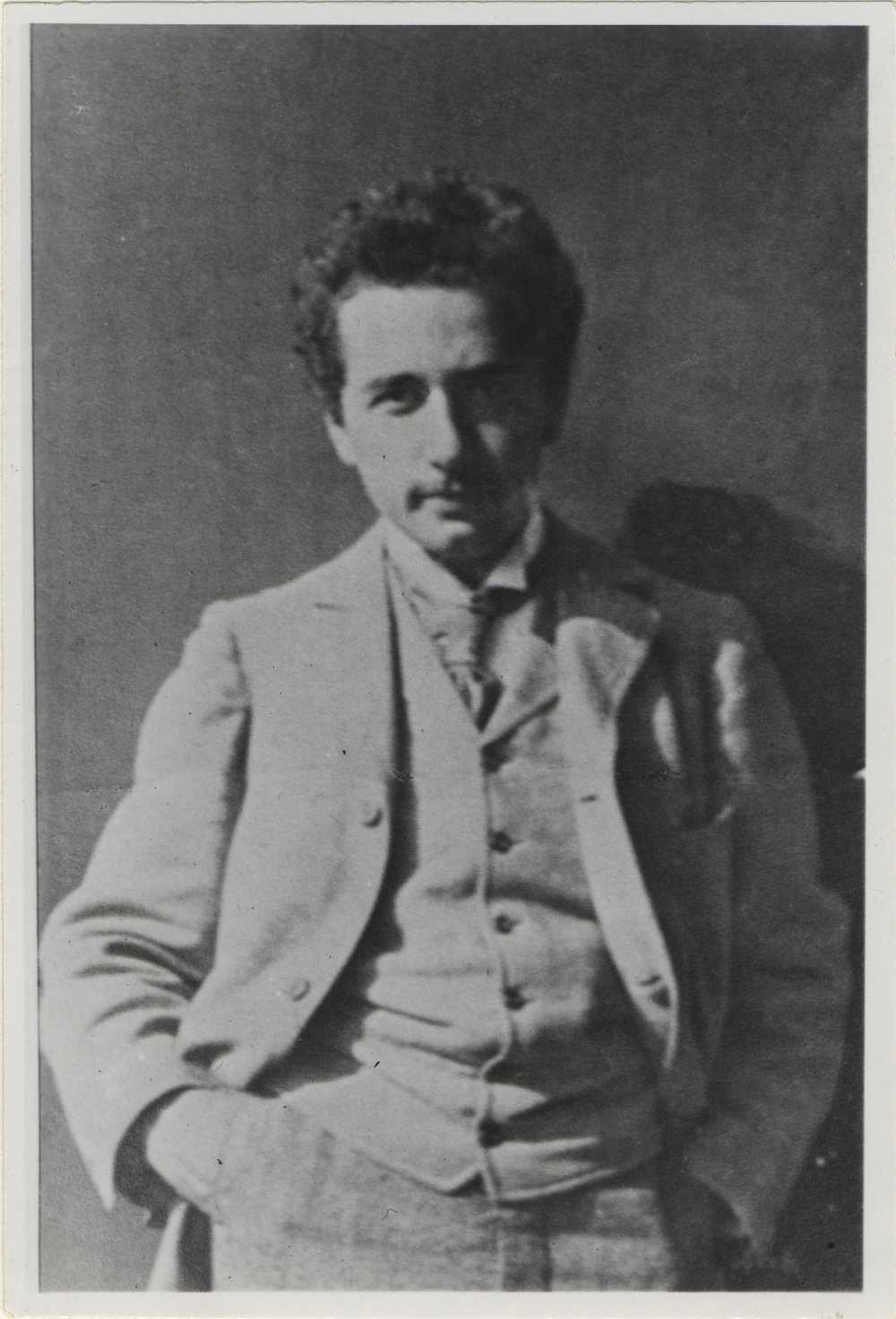
2. How old was Einstein when he started his studies at ETH (a federal polytechnic school at the time)?
✓ Correct Einstein was 16 years old when he took the ETH entrance examination for the first time. He didn’t pass, primarily due to his lack of linguistic and historical knowledge. The young Einstein showed a much more profound understanding of mathematical and science-related subjects. He finally passed the entrance examination in 1896, after completing his Matura (school leaving exam) at the cantonal school in Aarau. Einstein was 17 years old at the time. (Image: ETH Library Zurich, Image Archive)
✘ False Einstein was 16 years old when he took the ETH entrance examination for the first time. He didn’t pass, primarily due to his lack of linguistic and historical knowledge. The young Einstein showed a much more profound understanding of mathematical and science-related subjects. He finally passed the entrance examination in 1896, after completing his Matura (school leaving exam) at the cantonal school in Aarau. Einstein was 17 years old at the time. (Image: ETH Library Zurich, Image Archive)
- Question 3 of 12

3. What was the name of Einstein’s first wife, whom he met during his studies at ETH Zurich?
✓ Correct
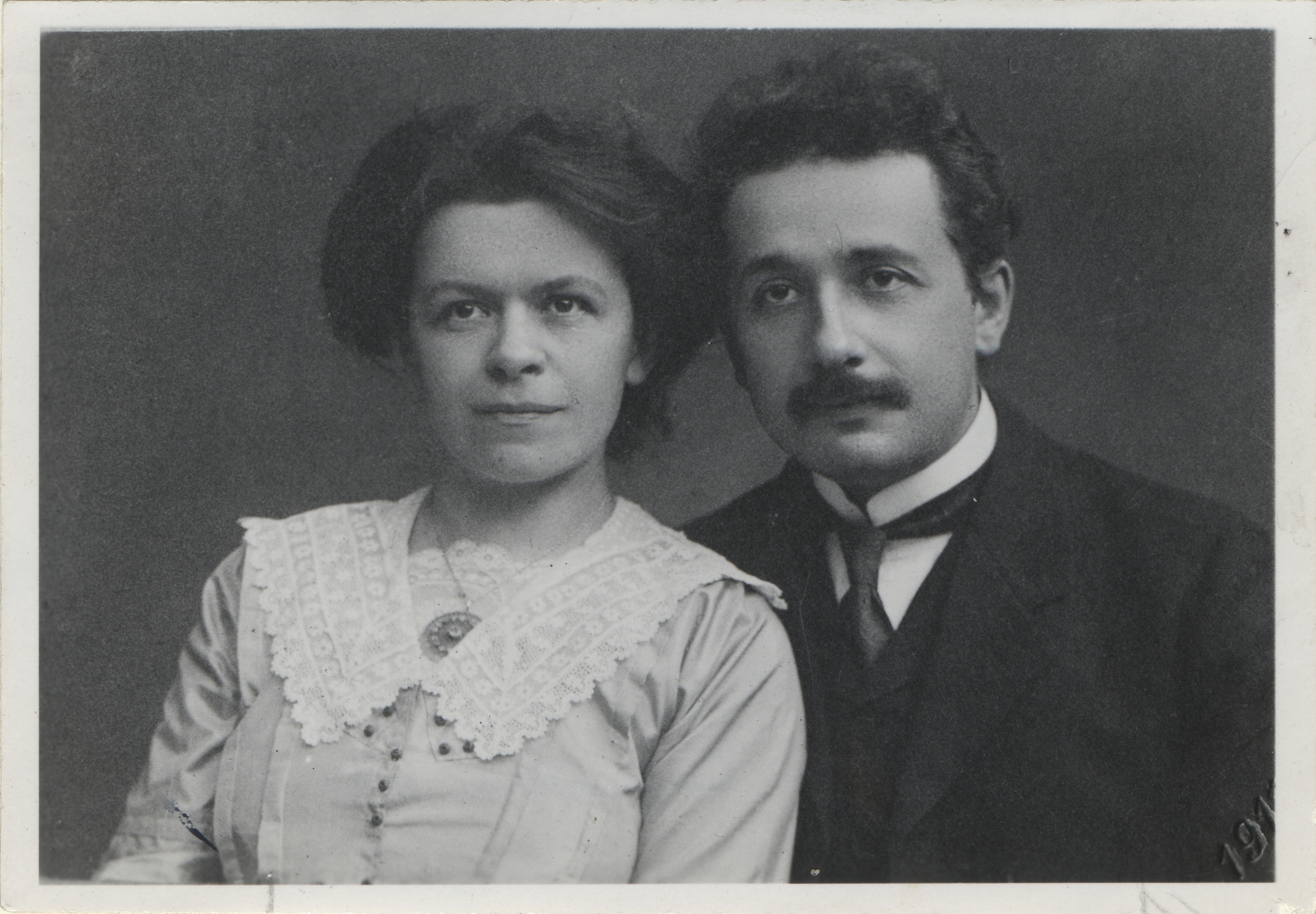 During his degree, Einstein met his fellow student – and later wife – Mileva Maric from Novi Sad. The pair married on 6 January 1903 in Bern. Einstein had one daughter and two sons with Maric. The extent of Maric’s involvement in Einstein’s work continues to be the subject of discussion today. (Image: ETH Library Zurich, Image Archive)
During his degree, Einstein met his fellow student – and later wife – Mileva Maric from Novi Sad. The pair married on 6 January 1903 in Bern. Einstein had one daughter and two sons with Maric. The extent of Maric’s involvement in Einstein’s work continues to be the subject of discussion today. (Image: ETH Library Zurich, Image Archive)✘ False
 During his degree, Einstein met his fellow student – and later wife – Mileva Maric from Novi Sad. The pair married on 6 January 1903 in Bern. Einstein had one daughter and two sons with Maric. The extent of Maric’s involvement in Einstein’s work continues to be the subject of discussion today. (Image: ETH Library Zurich, Image Archive)
During his degree, Einstein met his fellow student – and later wife – Mileva Maric from Novi Sad. The pair married on 6 January 1903 in Bern. Einstein had one daughter and two sons with Maric. The extent of Maric’s involvement in Einstein’s work continues to be the subject of discussion today. (Image: ETH Library Zurich, Image Archive)
- Question 4 of 12

4. Question 4 Which lecture did Einstein fail due to not working hard enough?
✓ Correct
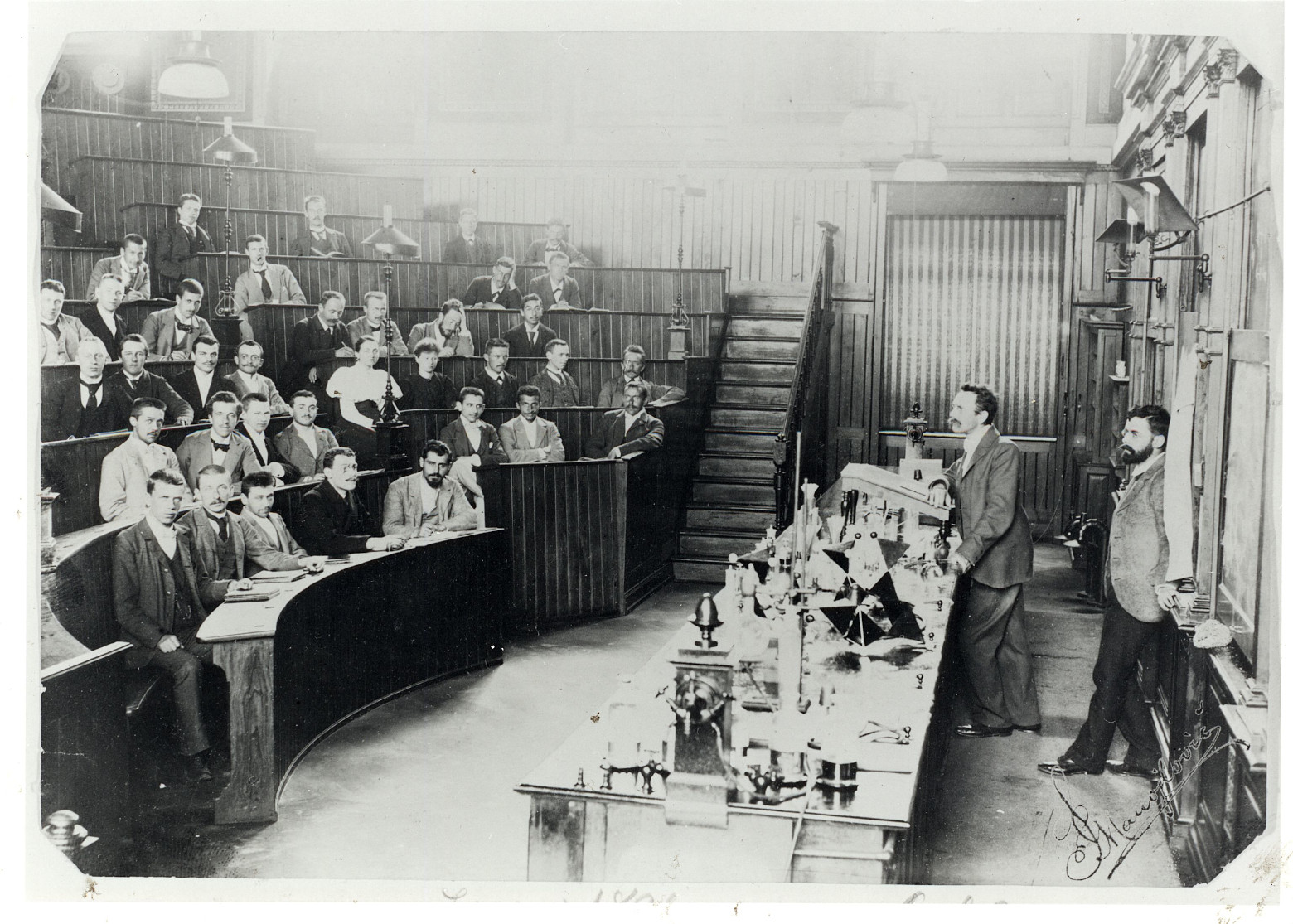 Einstein was an unremarkable student. After failing the physics practical course for beginners one too many times, he received a reprimand and a 'fail' mark on his interim report. His professor is said to have asked him: 'Why don’t you study medicine, jurisprudence or philology instead?', to which Einstein answered: 'Because I don’t really have the talent for it, Professor. Why shouldn’t I at least try physics?' (Image: ETH Library Zurich, Image Archive)
Einstein was an unremarkable student. After failing the physics practical course for beginners one too many times, he received a reprimand and a 'fail' mark on his interim report. His professor is said to have asked him: 'Why don’t you study medicine, jurisprudence or philology instead?', to which Einstein answered: 'Because I don’t really have the talent for it, Professor. Why shouldn’t I at least try physics?' (Image: ETH Library Zurich, Image Archive)✘ False
 Einstein was an unremarkable student. After failing the physics practical course for beginners one too many times, he received a reprimand and a 'fail' mark on his interim report. His professor is said to have asked him: 'Why don’t you study medicine, jurisprudence or philology instead?', to which Einstein answered: 'Because I don’t really have the talent for it, Professor. Why shouldn’t I at least try physics?' (Image: ETH Library Zurich, Image Archive)
Einstein was an unremarkable student. After failing the physics practical course for beginners one too many times, he received a reprimand and a 'fail' mark on his interim report. His professor is said to have asked him: 'Why don’t you study medicine, jurisprudence or philology instead?', to which Einstein answered: 'Because I don’t really have the talent for it, Professor. Why shouldn’t I at least try physics?' (Image: ETH Library Zurich, Image Archive)
- Question 5 of 12
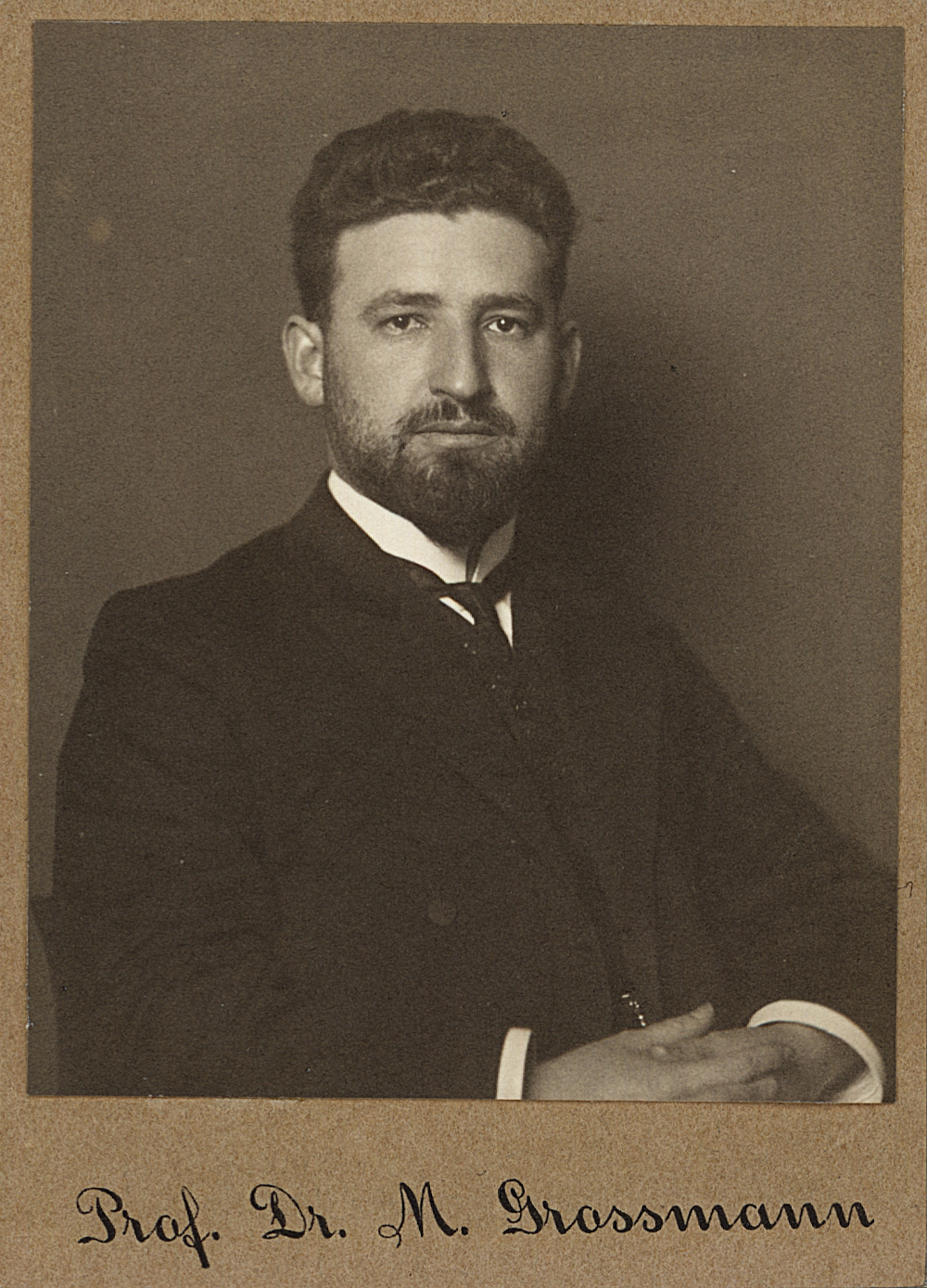
5. Albert Einstein described his fellow student Marcel Grossmann as 'his lifeline'. How did Grossman help Einstein?
✓ Correct It was Einstein’s friend Marcel Grossman who helped Einstein by lending him his meticulously recorded lecture notes. Einstein rarely attended the lectures, which is why he needed someone to come to his rescue. (Image: ETH Library Zurich, Image Archive)
✘ False It was Einstein’s friend Marcel Grossman who helped Einstein by lending him his meticulously recorded lecture notes. Einstein rarely attended the lectures, which is why he needed someone to come to his rescue. (Image: ETH Library Zurich, Image Archive)
- Question 6 of 12

6. Einstein loved music. Which instrument did he play?
✓ Correct
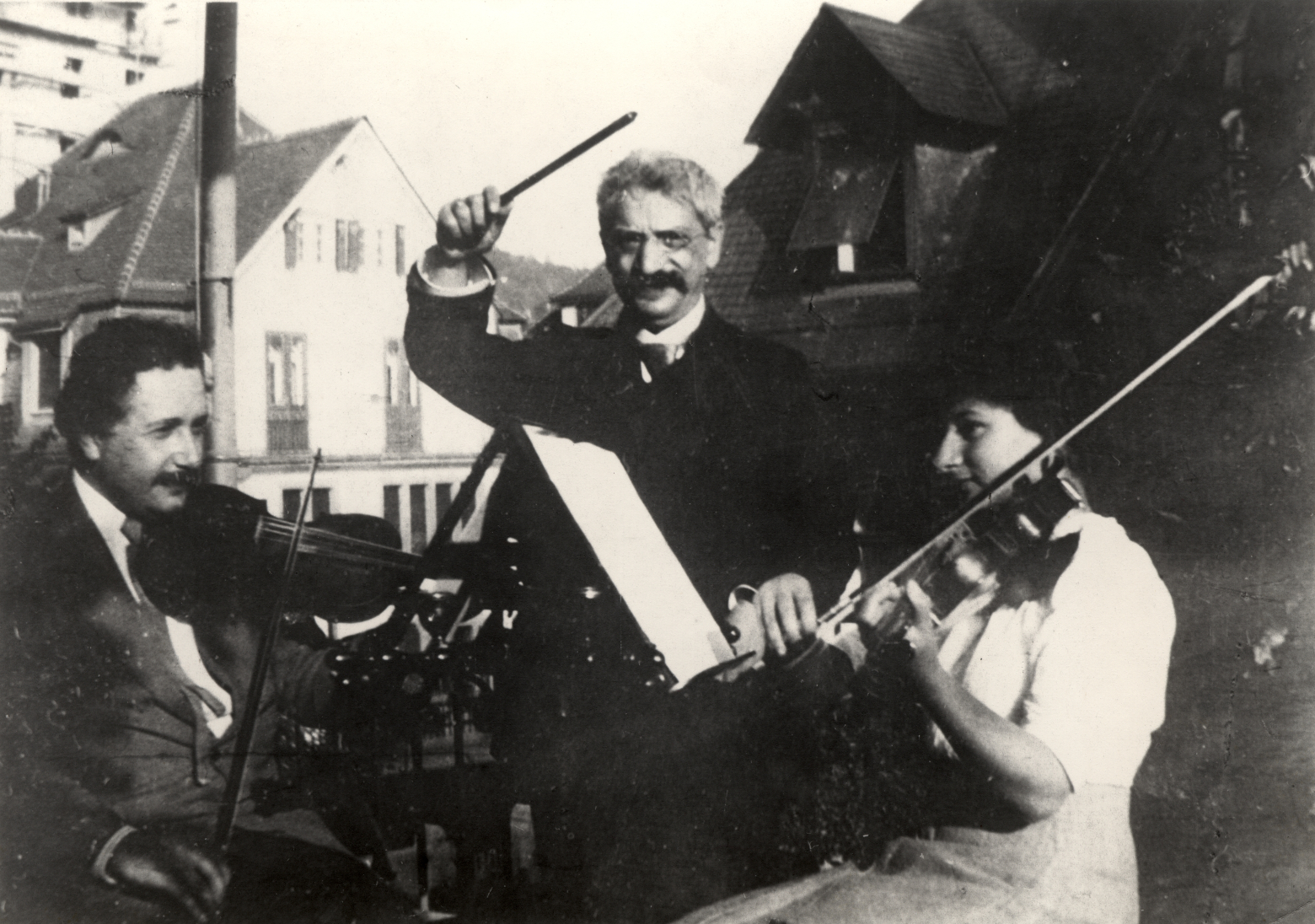 Einstein was a talented violinist, who enjoyed playing alone and with friends throughout his life. (Image: ETH Library Zurich, Image Archive)
Einstein was a talented violinist, who enjoyed playing alone and with friends throughout his life. (Image: ETH Library Zurich, Image Archive)✘ False
 Einstein was a talented violinist, who enjoyed playing alone and with friends throughout his life. (Image: ETH Library Zurich, Image Archive)
Einstein was a talented violinist, who enjoyed playing alone and with friends throughout his life. (Image: ETH Library Zurich, Image Archive)
- Question 7 of 12
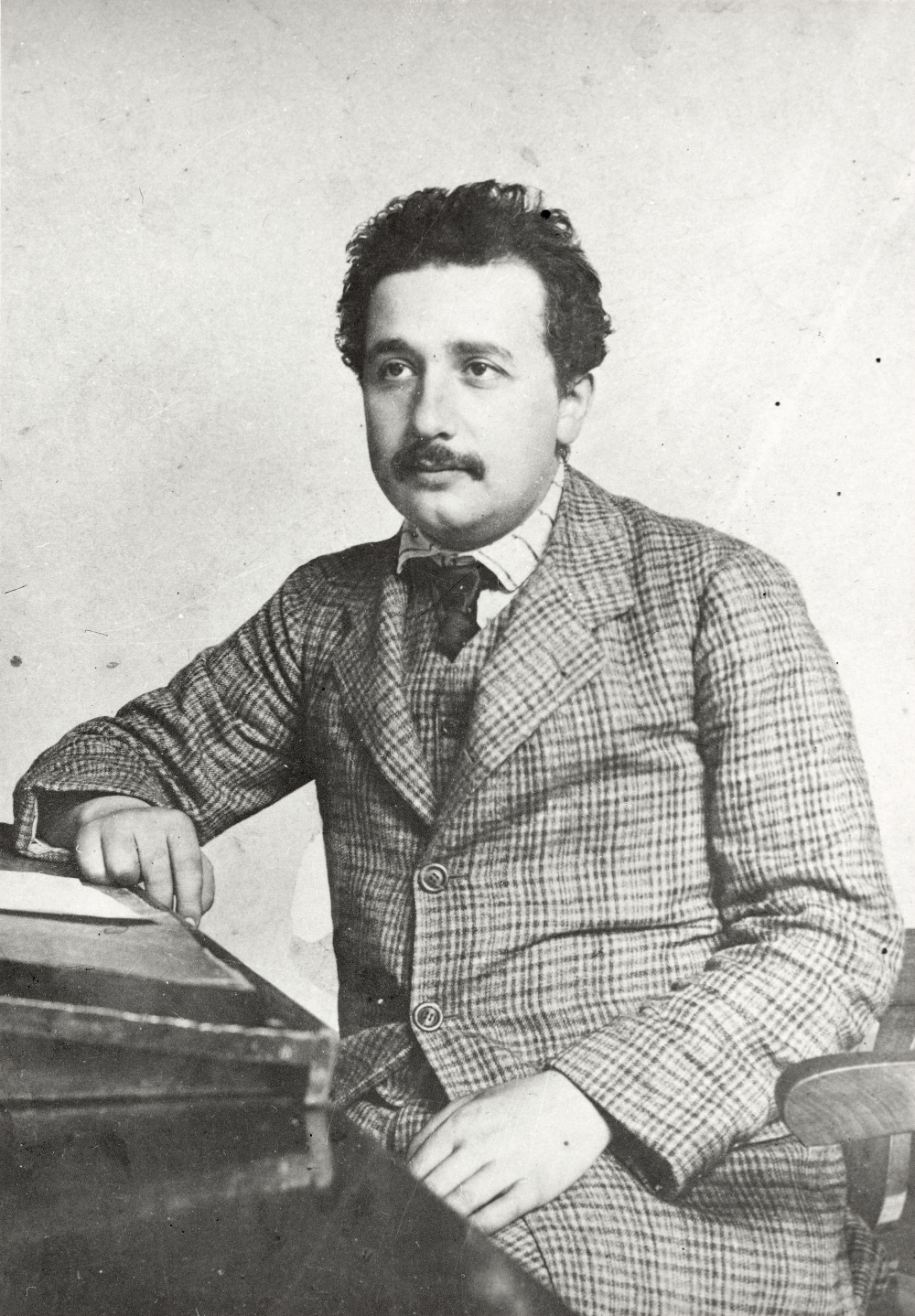
7. Which job did Albert Einstein have after completing his studies at ETH?
✓ Correct After finishing his studies at ETH, Einstein initially made ends meet by taking on various odd jobs, including as a private tutor in Bern. It wasn’t until 1902 – on the advice of fellow student Marcel Grossman’s father – that he found a job as a technical expert at the Swiss Patent Office in Bern. It was at this institution, far removed from the world of academia, that Einstein published no fewer than 33 scientific papers up to 1909. (Image: ETH Library Zurich, Image Archive)
✘ False After finishing his studies at ETH, Einstein initially made ends meet by taking on various odd jobs, including as a private tutor in Bern. It wasn’t until 1902 – on the advice of fellow student Marcel Grossman’s father – that he found a job as a technical expert at the Swiss Patent Office in Bern. It was at this institution, far removed from the world of academia, that Einstein published no fewer than 33 scientific papers up to 1909. (Image: ETH Library Zurich, Image Archive)
- Question 8 of 12
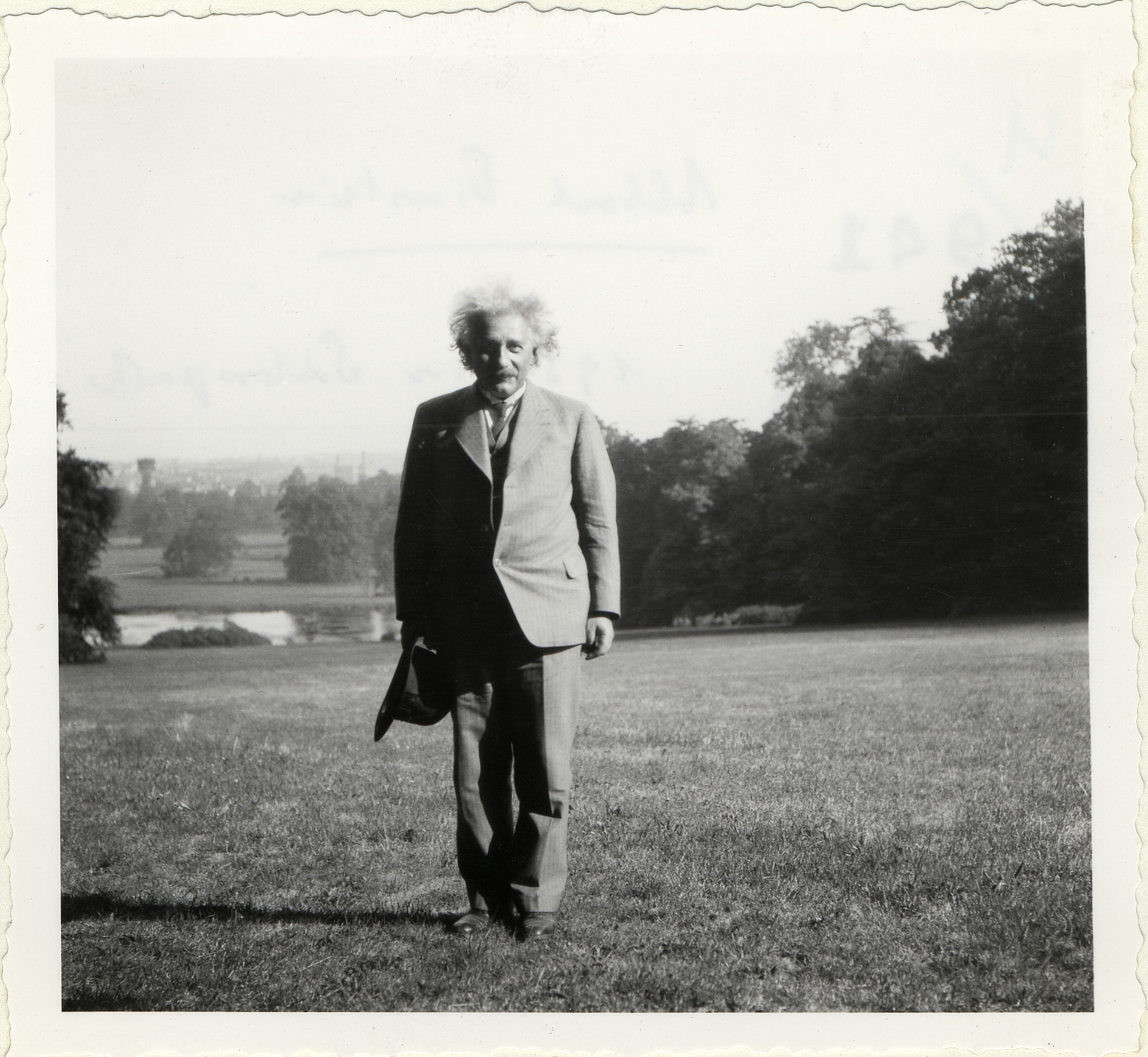
8. For which paper did Einstein receive the Nobel Prize in 1921?
✓ Correct For Einstein, 1905 was a remarkable year. He wrote a total of five significant papers on three subjects: reality and the size of atoms, photons and the special theory of relativity. He was awarded the Nobel Prize in 1921 for his work on the quantum theory of light. (Image: ETH Library Zurich, Image Archive)
✘ False For Einstein, 1905 was a remarkable year. He wrote a total of five significant papers on three subjects: reality and the size of atoms, photons and the special theory of relativity. He was awarded the Nobel Prize in 1921 for his work on the quantum theory of light. (Image: ETH Library Zurich, Image Archive)
- Question 9 of 12
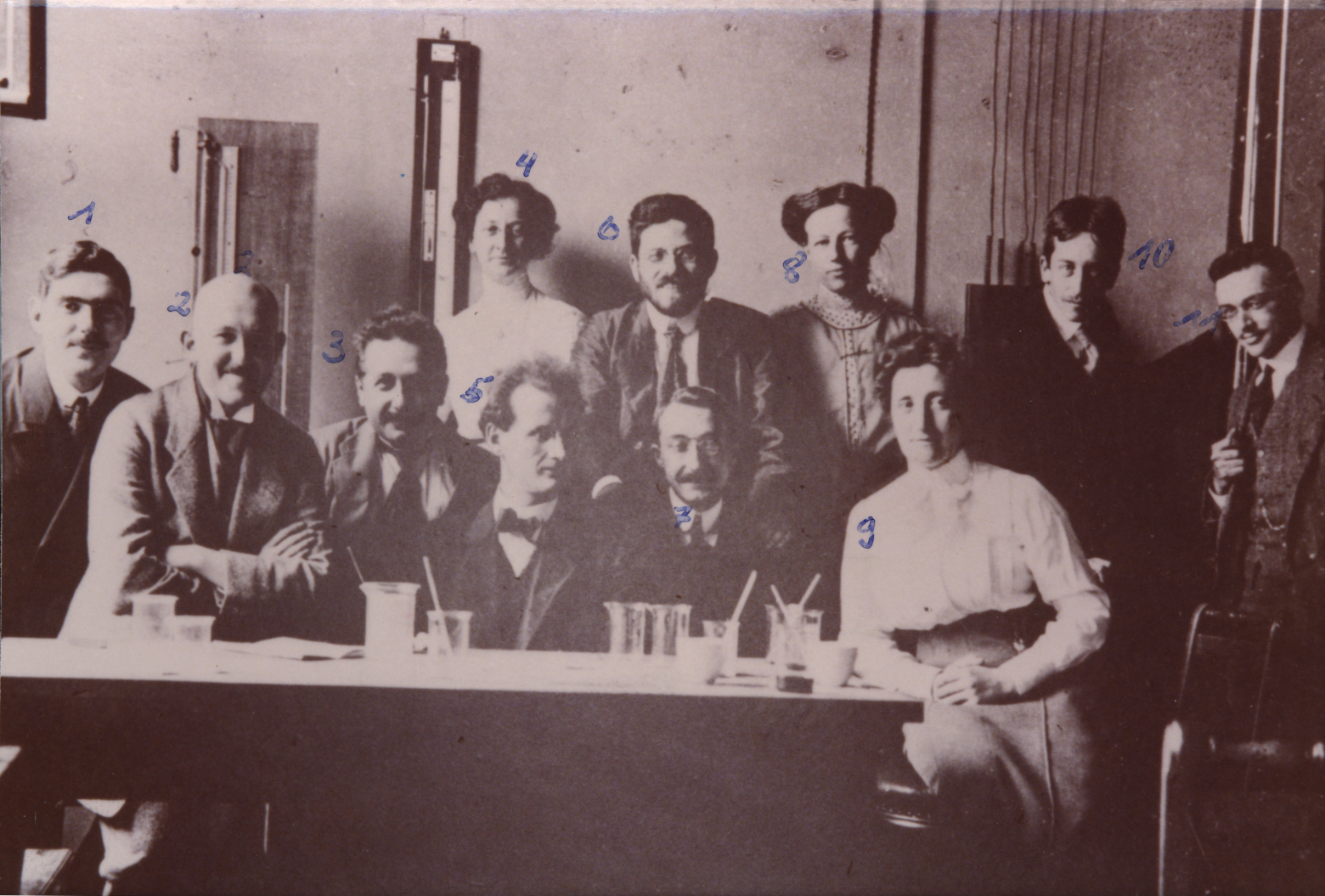
9. On which topic did Einstein spend much of his time working as a professor at ETH?
✓ Correct Einstein was a full professor of theoretical physics at ETH from 1912 to 1914. Together with his former fellow student Marcel Grossman, who had since risen to the position of professor of mathematics at ETH, Einstein used this time to focus on his general theory of relativity (also known as the geometric theory of gravitation). Einstein set out the equations (almost all correct) in his notebook in Zurich, but it wasn’t until three years later, as a professor in Berlin, that he realised their full significance. (Image: ETH Library Zurich, Image Archive)
✘ False Einstein was a full professor of theoretical physics at ETH from 1912 to 1914. Together with his former fellow student Marcel Grossman, who had since risen to the position of professor of mathematics at ETH, Einstein used this time to focus on his general theory of relativity (also known as the geometric theory of gravitation). Einstein set out the equations (almost all correct) in his notebook in Zurich, but it wasn’t until three years later, as a professor in Berlin, that he realised their full significance. (Image: ETH Library Zurich, Image Archive)
- Question 10 of 12

10. Which of the inventions below is based on Einstein's theories?
✓ Correct
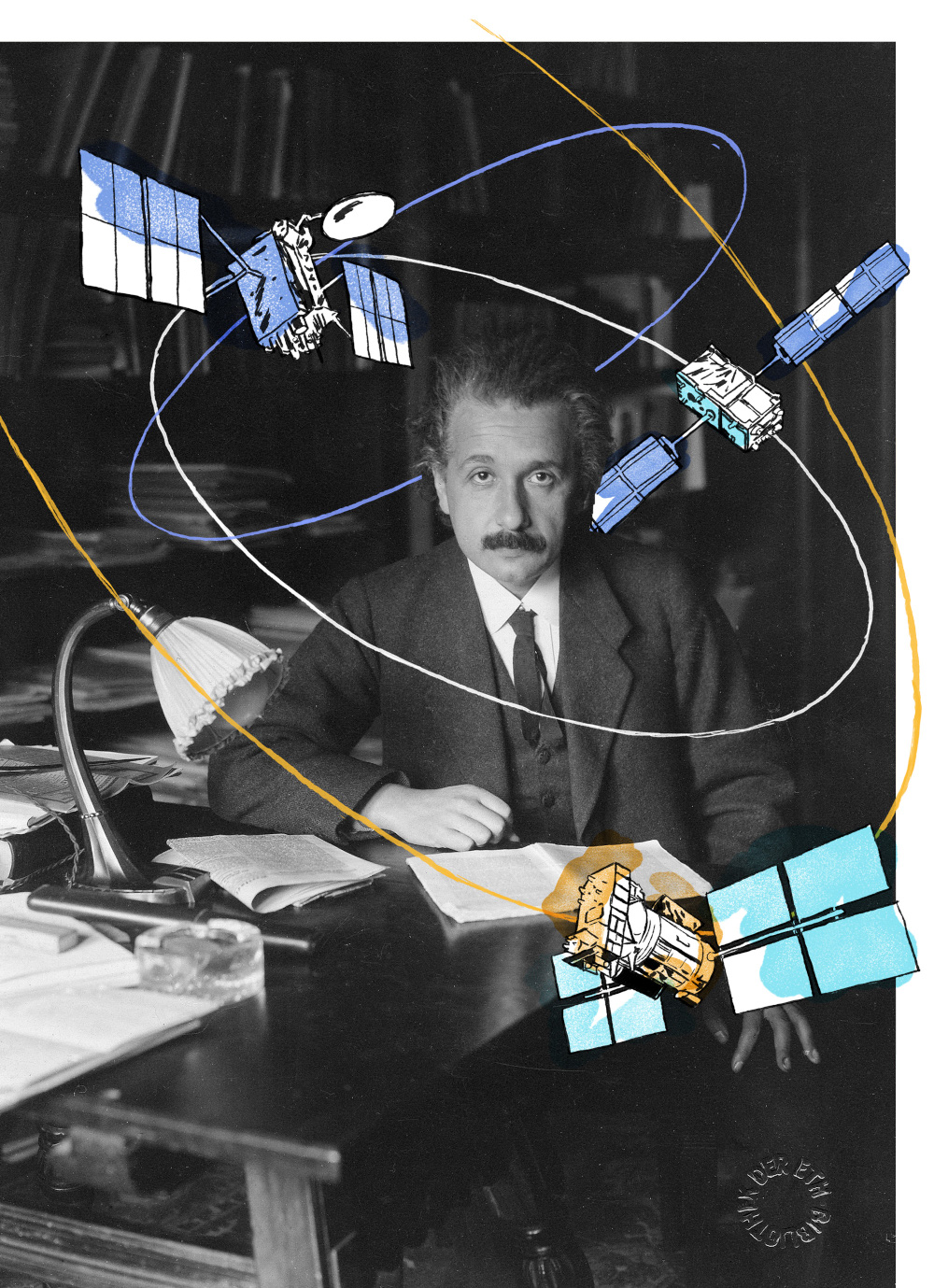 There would be no GPS without Einstein’s theory of relativity. It was Einstein whose general theory of relativity anticipated that clocks on board satellites run slower than clocks on Earth. If this time difference were not taken into account, this would result in incorrect location information of up to several kilometres occurring every day. (Illustration: Oculus Illustration / ETH Library Zurich, Image Archive)
There would be no GPS without Einstein’s theory of relativity. It was Einstein whose general theory of relativity anticipated that clocks on board satellites run slower than clocks on Earth. If this time difference were not taken into account, this would result in incorrect location information of up to several kilometres occurring every day. (Illustration: Oculus Illustration / ETH Library Zurich, Image Archive)✘ False
 There would be no GPS without Einstein’s theory of relativity. It was Einstein whose general theory of relativity anticipated that clocks on board satellites run slower than clocks on Earth. If this time difference were not taken into account, this would result in incorrect location information of up to several kilometres occurring every day. (Illustration: Oculus Illustration / ETH Library Zurich, Image Archive)
There would be no GPS without Einstein’s theory of relativity. It was Einstein whose general theory of relativity anticipated that clocks on board satellites run slower than clocks on Earth. If this time difference were not taken into account, this would result in incorrect location information of up to several kilometres occurring every day. (Illustration: Oculus Illustration / ETH Library Zurich, Image Archive)
- Question 11 of 12
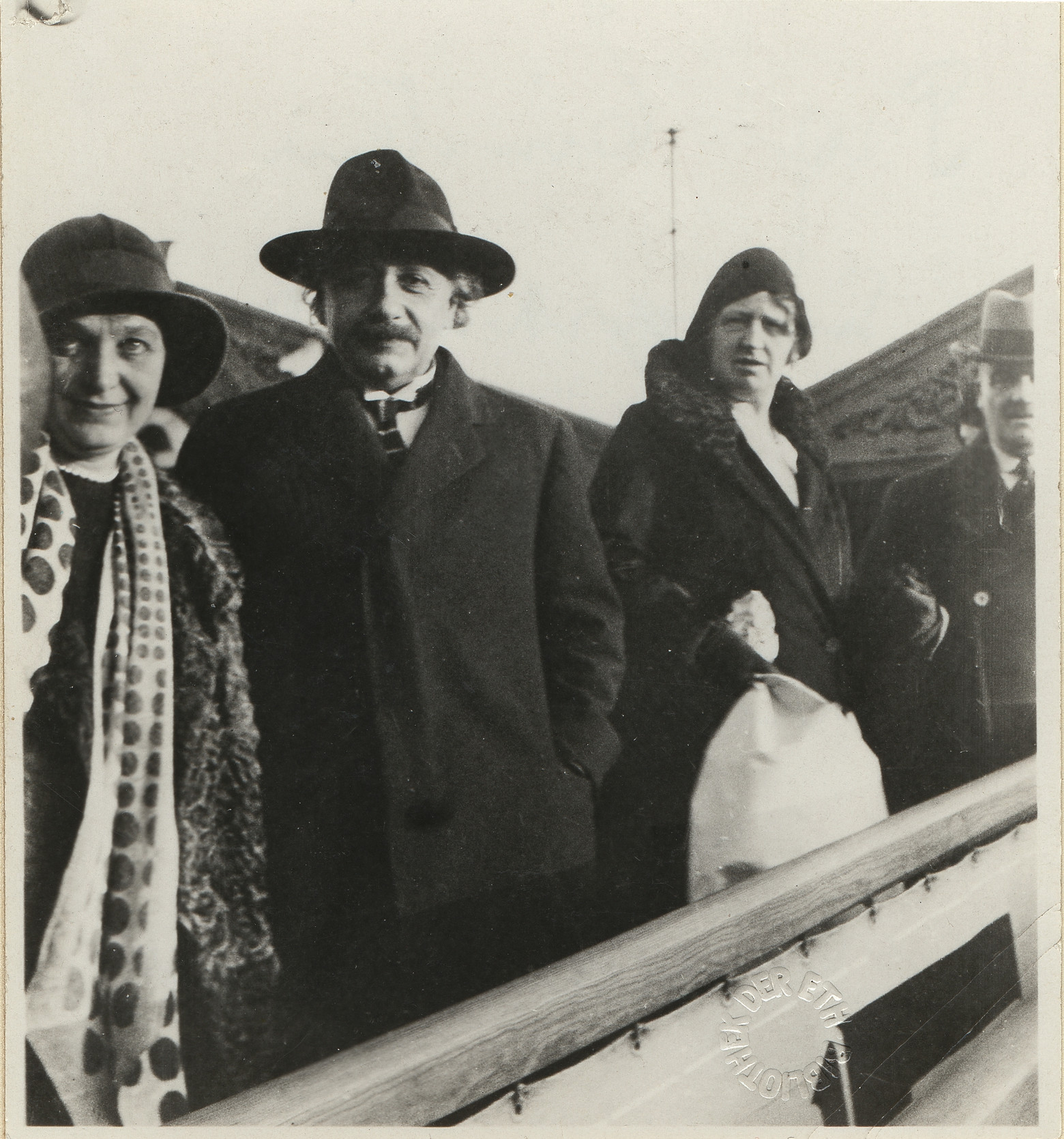
11. When did Einstein start teaching at the Institute for Advanced Study at Princeton?
✓ Correct After the Nazis rose to power in 1933, Einstein left Germany and conducted research at the Institute for Advanced Study at Princeton until his death in 1955. (Image: ETH Library Zurich, Image Archive)
✘ False After the Nazis rose to power in 1933, Einstein left Germany and conducted research at the Institute for Advanced Study at Princeton until his death in 1955. (Image: ETH Library Zurich, Image Archive)
- Question 12 of 12

12. How is ETH Zurich celebrating the 100th anniversary of Einstein’s Nobel Prize?
✓ Correct
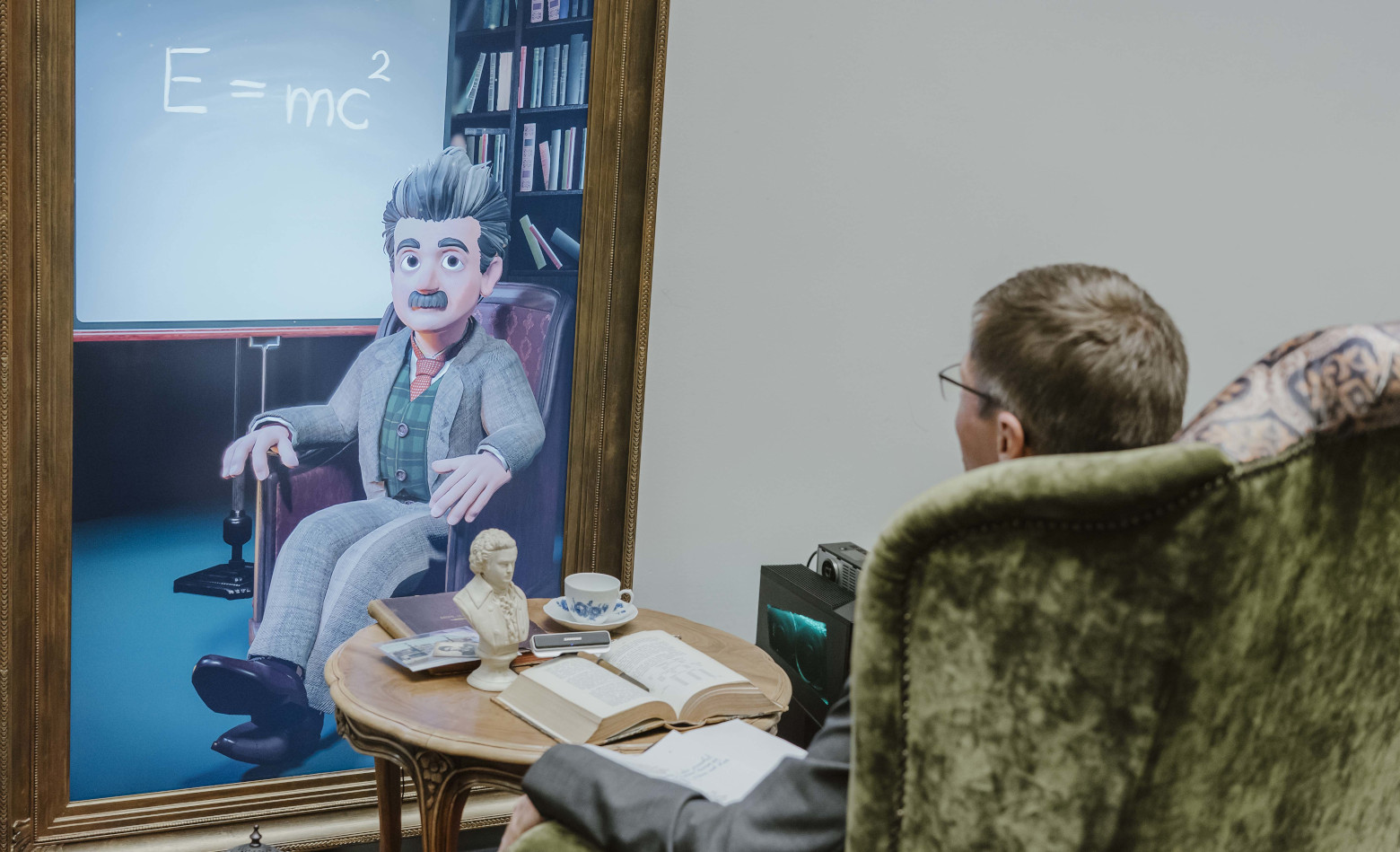 Albert Einstein was awarded the Nobel Prize for Physics a century ago. To mark this occasion, ETH Zurich has brought its most famous alumnus to life digitally. The institution has created a 'digital Einstein' platform, which those interested can interact with at various ETH locations in 2021. 'Digital Einstein' will occupy ETH Zurich’s main building at the start of the semester. (Image: ETH Zürich / Nicole Davidson)
Albert Einstein was awarded the Nobel Prize for Physics a century ago. To mark this occasion, ETH Zurich has brought its most famous alumnus to life digitally. The institution has created a 'digital Einstein' platform, which those interested can interact with at various ETH locations in 2021. 'Digital Einstein' will occupy ETH Zurich’s main building at the start of the semester. (Image: ETH Zürich / Nicole Davidson)✘ False
 Albert Einstein was awarded the Nobel Prize for Physics a century ago. To mark this occasion, ETH Zurich has brought its most famous alumnus to life digitally. The institution has created a 'digital Einstein' platform, which those interested can interact with at various ETH locations in 2021. 'Digital Einstein' will occupy ETH Zurich’s main building at the start of the semester. (Image: ETH Zürich / Nicole Davidson)
Albert Einstein was awarded the Nobel Prize for Physics a century ago. To mark this occasion, ETH Zurich has brought its most famous alumnus to life digitally. The institution has created a 'digital Einstein' platform, which those interested can interact with at various ETH locations in 2021. 'Digital Einstein' will occupy ETH Zurich’s main building at the start of the semester. (Image: ETH Zürich / Nicole Davidson)
Comments
Additional comments are available for the German version of this article. Show all comments
I love the articles about Einstein. I practically lived with him as I read about the various stages of his life.
I got hooked with the quiz but too few questions, I was expecting much more to be honest :) cool stuff though!
Appreciated, no doubt M.Grossman helped A.Einstein (by lending him his meticulously recorded lecture notes) but...are you sure they never studied together? I've heard that M.Grossman's father helped A.Einstein in several way (the job at Basel Patent Office, for istance, as shown in one of the following question) and asked to Marcel to help Albert: could it be possible they were friends more than just collegues? Could it be happened that Prof. Grossman (I refer to the father) asked to Marcel to help Albert studing together too? What are documents at ETH or elsewhere showing the relationship among Marcel and Albert (letters, diary, personal notes, facts related by others, etc.)? By the way, about M.Grossman inheritance of Maths Professor charge: well done ETH ! For this QUIZ too! THX and regards
Nice quiz, and I thought quite difficult. OK score, but I should have done better. A bit more thought before I answered would have helped
I liked solving the quiz, but I made many mistakes. I don't have much knowledge of physics, so I couldn't achieve a good result.
Great challenge in rememberance of the your most famous alumnus. The challenge would have been greater if a time limit was imposed, even without dilation!
Very nice initiative! Thanks a lot for this. Just one thing: I don't think it's true that his first work after graduation was at the patent office. After more than 1 year searching for a position at practically any University in Europe, he worked as a teacher at a technical high school for a while (it was a temporary job only, of course). But maybe I am wrong!
Dear Hernán, Thank you for your comment. You are absolutely right. Einstein did indeed have a few part time jobs before he started at the patent office in Bern. For the sake of simplicity, however, the questions alludes to his first "real, full time job" after ETH. Best wishes from Zurich and thx for taking the quiz Christoph Elhardt
If our imagination is most important, where are we failing to imagine the pathway to deal with so many global structural problems? Primarily in the areas of the collapse of our bio integrity (losing half of all animal species and creating a less hospitable planet)